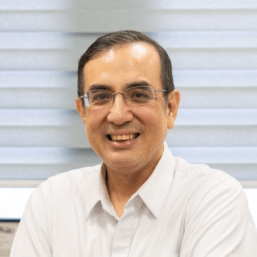ESPRESSO MORNINGS
By Joe Zaldarriaga

He was the architect behind Meralco’s most celebrated milestones in the field of communications— steering the company to five-time Company of the Year honors at the Philippine Quill Awards and leading the only PR team ever named Team of the Year in the history of the Anvil Awards.
Manong Joe’s leadership also extends as a respected member of the Board of Trustees for the Public Relations Society of the Philippines (PRSP), concurrent with his role as Chairman of the International Association of Business Communicators Philippines (IABC Philippines) where he also served as its President.
Manong Joe is a distinguished awardee of the medallion of honor and scroll of commendation from the University of Manila, owing to his years in public service as a communications professional. He shares his insights through columns in renowned publications, including The Philippine Star’s The Z Factor, and Philippine News Agency’s ESPRESSO MORNINGS.
I recently sat down with Senior Citizens Party-list Rep. Rodolfo “Ompong” Ordanes to share insights on the services available to the Filipino elderly especially when it comes to healthcare and he brought up an alarming and sad reality: The Philippines lacks specialized public healthcare for those aged 60 and up.
Ordanes emphasized this as he shared his efforts to push for the creation of dedicated geriatric wards in public hospitals and the hiring of more geriatric doctors to address the specialized health concerns of the elderly.
Geriatric medicine, which focuses on the special health needs of older adults, remains severely underdeveloped in the country. Most hospitals lack the infrastructure, personnel and protocols to address the complex interplay of chronic illnesses and mobility issues that many seniors face.
As the lawmaker emphasized, senior citizens are more vulnerable to infections and diseases than the rest of the population and therefore should have access to healthcare services designed to meet their needs.
As a senior citizen myself, I know firsthand the health challenges that people face in old age. The creation of geriatric wards in public hospitals is not merely a matter of convenience; it is a matter of dignity. Senior citizens deserve healthcare that recognizes their distinct needs, not a one-size-fits-all approach that treats aging as an inconvenience.
While the Expanded Senior Citizens Act of 2010 institutionalizes the access of the elderly to medical services in government facilities, the reality on the ground is far from ideal. Many senior citizens grapple with long queues and lack of facilities and equipment to treat their health conditions, which forces them to either forego treatment or rely on out-of-pocket expenses.
This is not right. The government must invest in integrating elder care into the broader public health agenda. This involves training and employing more geriatric specialists, equipping public hospitals and barangay health centers with senior-friendly facilities and equipment, and providing priority lanes for senior citizens seeking medical attention.
Mental health should also be part of the conversation when it comes to healthcare for senior citizens who are at risk of conditions such as depression, anxiety and dementia.
Moreover, a proactive approach to senior health should be institutionalized and embraced not just at the policy level but also in the community. This should go beyond medical treatment for existing illnesses or health conditions but also cover preventive care, wellness programs, information campaigns, and community-based support.
I call on our legislators to support and pass House Bill 433 or the Comprehensive Welfare and National Health Program for Senior Citizens Act, which will help ensure wellness programs for the elderly.
Unlike the billions lost to corruption in flood control projects, improving the healthcare system for the elderly is not a luxury — it is essential. These are basic entitlements that our senior citizens deserve after decades of work and contributing to the nation.
But legislation alone is not enough, ensuring proper implementation is equally important as well. We need a cultural shift in how we perceive aging and elder care. In many Filipino households, caring for elderly parents is seen as a moral duty. Yet this familial care, while noble, cannot substitute for systemic support.
We must ask ourselves: Are we content with a system that sidelines our elders, or are we ready to build one that respects them and their contributions to society?
If we can afford to lose billions to corruption in flood control, surely we can afford to invest in the health and dignity of our senior citizens.
Let’s make that choice, not only for their benefit but for the future generations of Filipinos as well.


